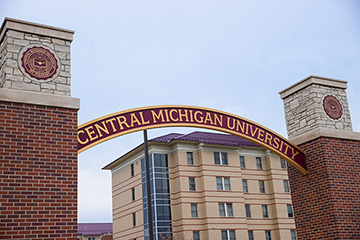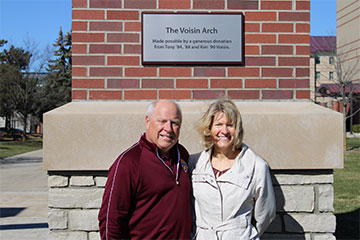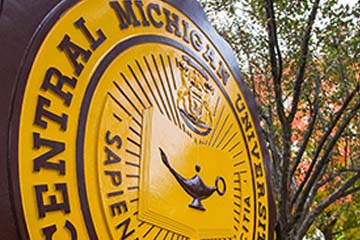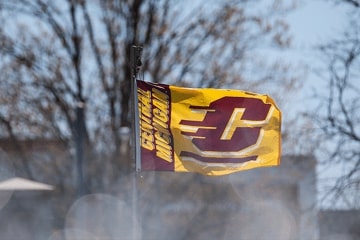12 things to know about CMU Sexual Aggression Peer Advocates
SAPA has been listening to survivors for 23 years
A lot of things can change over 23 years. For Central Michigan University's Sexual Aggression Peer Advocates, two things have not: Confidentiality and around-the-clock availability.
Brooke Oliver-Hempenstall, director of CMU Sexual Aggression Services, said those are cornerstones of a more-than-two-decades mission to be available for people who have experienced sexual misconduct.
"We're not here to tell them what to do," she said. "We're here to support and to listen."
As SAPA launches into a new year, here are a dozen things to know about the service:
- SAPA volunteers are trained CMU students who can talk confidentially with people in need. You can reach a SAPA volunteer by calling 989-774-2255 at any time, day or night.
- The volunteers also speak before groups in classrooms, residence halls and student organizations. To keep safety a top priority amid the COVID-19 pandemic, many programs this year will be virtual or prerecorded. A live chat service is expected to roll out in September with online privacy safeguards.
- Steve Thompson, emeritus faculty member in Physical Education and Sport, said SAPA was the nation's first program to offer survivors peer-to-peer confidential advocacy. Thompson co-founded SAPA in 1997 with then-Dean of Students Bruce Roscoe.
- SAPA volunteers are available to speak with anyone — survivors, friends, parents, roommates, faculty, staff and more — who have been impacted by sexual and domestic violence, stalking and/or harassment.
- Volunteers receive 60 hours of annual training to provide confidential services. They collectively volunteer over 1,000 hours each year, providing crisis services, educational programming and awareness events.
- On average, the SAPA organization receives six requests for services each week.
- SAPA volunteers are current CMU students from all walks of life who are studying different majors and programs and are involved in many other CMU communities and organizations.
- This year, 34 students are returning as volunteers, and 44 new students have been invited to train over two weekends in September. Oliver-Hempenstall said she expects at least 60 students will end up working as SAPA volunteers this year.
- Since 1997, more than 400 students have served as SAPA volunteers.
- SAPA is one of the few resources on campus that provide confidential services. Advocates are able to connect people to campus and community resources, including police, medical care or CMU's Office of Civil Rights and Institutional Equity. The course of action is up to each survivor.
- SAPA members are part of No Zebras, No Excuses, a mandatory orientation program for all incoming CMU students.
- You can follow SAPA at @sapa_cmich on Instagram and Twitter, and CMU Sexual Aggression Peer Advocates on Facebook.
Backed by the book
Co-founder Steve Thompson continues to support SAPA today through sales of his new book, "No Zebras! Engaging Bystanders in the Movement to End Sexual Aggression." The title comes from the observation that when a predator takes down a member of their herd, other zebras don't get involved.
Thompson teaches that there should be no idle bystanders when a person is victimized. "No Zebras, No Excuses" is the name he gave to CMU's mandatory sexual aggression education program for incoming students. He now speaks globally on sexual aggression, along with former SAPA volunteers he has hired through his
"I am donating to SAPA all the royalties from the first 400 books sold," he said. "The number represents the approximate number of people who were and are SAPAs. They have influenced me greatly, and I am honored to have the privilege of working with some of the finest people you could imagine."
"It means the world, what Steve has committed to," said Brooke Oliver-Hempenstall, director of CMU Sexual Aggression Services. "His commitment has always been to SAPA and to survivors."




